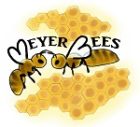When it comes to building a strong and sustainable bee colony, the genetics of your queen bee matter more than most beekeepers realize. Among the many options available today, Russian queen bees have gained significant attention—and for good reason. These hardy queens are known for their resistance to pests, particularly Varroa mites, and their ability to thrive in challenging climates.
In this post, we’ll explore the unique characteristics of Russian queen bees, their pros and cons, and why more beekeepers across North and Midwestern United States are choosing them to strengthen their hives.
What Are Russian Queen Bees?
Russian queen bees originate from the Primorsky region of Russia and were introduced to the United States in the 1990s by the USDA Bee Research Laboratory. The goal was to find a bee stock that had natural resistance to Varroa destructor, the parasitic mite that has devastated colonies worldwide.
These queens were carefully selected and bred over generations to retain their mite-resistance traits while adapting to different environments. Today, Russian bees are recognized as a separate breed and are selectively bred by certified Russian Bee Breeders Association (RBBA) members to maintain genetic integrity.
Key Traits of Russian Queen Bees
Varroa Mite Resistance
This is perhaps the most notable trait. Russian bees have shown a natural ability to detect and remove infested broods, limiting mite reproduction and slowing the spread within the hive.
Hygienic Behavior
Russian bees are known for their grooming behavior. Worker bees will clean each other and disrupt mite development, helping reduce the mite load without chemicals.
Winter Hardiness
Bred in cold climates, Russian queen bees are particularly suited for northern regions. They overwinter well and start brooding later in spring, conserving resources.
Brood Cycle Control
Unlike other bee breeds that maintain large populations year-round, Russian bees modulate their brood rearing based on nectar flow and environmental conditions, making them more efficient in resource usage.
Swarm Management
Russian bees are known to swarm more frequently than Italians or Carniolans. However, experienced beekeepers find this manageable with proper hive management techniques.
Pros of Choosing Russian Queen Bees
- Reduced Chemical Use: Thanks to their natural mite resistance, you may not need to rely as heavily on chemical treatments.
- Cost Savings Over Time: Fewer treatments and better overwintering success can lead to long-term savings.
- Strong Survival Instincts: Excellent for harsher climates, especially in the northern U.S. and Canada.
- Disease Resistance: Aside from mites, Russian bees show greater resistance to some common diseases like chalkbrood and Nosema.
Cons to Consider
- More Defensive: Russian bees can be more protective of their hive, though not aggressively so. They may not be ideal for urban or backyard beekeepers who want docile bees.
- Complex Management: They can be a bit more unpredictable in brood and swarm behavior, requiring a more hands-on approach.
- Genetic Purity Matters: Hybrids or non-certified queens may not carry the same desirable traits. It’s crucial to buy from certified Russian queen breeders.
Best Use Cases for Russian Queens
- Apiaries in Cold Climates: Russian bees overwinter extremely well and are ideal for colder regions.
- Treatment-Free Beekeeping: For beekeepers pursuing organic or chemical-free hive management, Russian bees provide a promising foundation.
- Experienced Beekeepers: Those comfortable managing hive dynamics and swarming tendencies will get the most benefit.
Final Thoughts
Russian queen bees offer a compelling solution to some of modern beekeeping’s biggest challenges. With their resilience, natural Varroa mite resistance, and suitability for colder climates, they are an excellent option for those looking to minimize chemical usage and increase hive sustainability.
While they may not be the perfect fit for every beekeeper, those who invest the time to understand and manage them properly often find themselves rewarded with strong, healthy, and productive hives.

